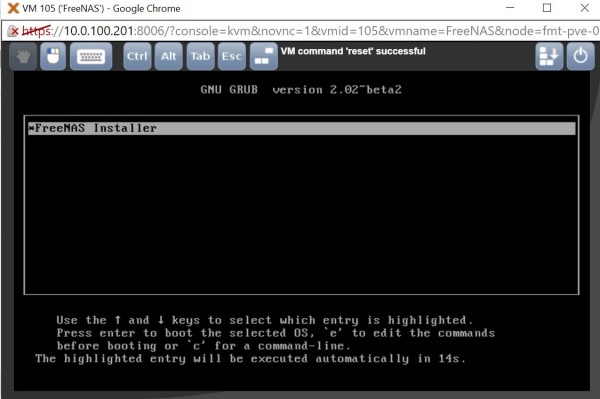Freenas Virtio Drivers
- 13 Comments!

FreeNAS® VMs use the bhyve(8) virtual machine software. VirtIO uses paravirtualized drivers and can provide better performance, but requires the operating. KVM/QEMU Windows guest drivers (virtio-win) This repository contains KVM/QEMU Windows guest drivers, for both paravirtual and emulated hardware. The code builds and ships as part of the virtio-win RPM on Fedora and Red Hat Enterprise Linux, and the binaries are also available in the form of distribution-neutral ISO and VFD images.
In case of RSS disable IOCTL the driver rejects the command due to 'invalid length' although the length of of the received structure is correct. The structure does not include any extensions as they are not required for case of RSS disable. Current commit moves checks that expect extended length of received structure to the case when the IOCTL does not disable RSS. It also adds printouts for each case the driver fails the IOCTL due to wrong length. For example, such IOCTL comes during driver disable.

Signed-off-by: Yuri Benditovich. KVM/QEMU Windows guest drivers (virtio-win) This repository contains KVM/QEMU Windows guest drivers, for both paravirtual and emulated hardware. The code builds and ships as part of the virtio-win RPM on Fedora and Red Hat Enterprise Linux, and the binaries are also available in the form of distribution-neutral ISO and VFD images.
If all you want is use virtio-win in your Windows virtual machines, go to the for information on obtaining the binaries. If you'd like to build virtio-win from sources, clone this repo and follow the instructions in.
Telugu tv serial actress. Note that the drivers you build will be either unsigned or test-signed with Tools/VirtIOTestCert.cer, which means that Windows will not load them by default. See for more information on test-signing. If you want to build cross-signed binaries (like the ones that ship in the Fedora RPM), you'll need your own code-signing certificate. Cross-signed drivers can be used on all versions of Windows except for the latest Windows 10 with secure boot enabled. However, systems with cross-signed drivers will not receive Microsoft support.
If you want to produce Microsoft-signed binaries (fully supported, like the ones that ship in the Red Hat Enterprise Linux RPM), you'll need to submit the drivers to Microsoft along with a set of test results (so called WHQL process). If you decide to WHQL the drivers, make sure to base them on commit eb2996de or newer, since the GPL license used prior to this commit is not compatible with WHQL. Additionally, we ask that you make a change to the Hardware IDs so that your drivers will not match devices exposed by the upstream versions of KVM/QEMU. This is especially important if you plan to distribute the drivers with Windows Update, see the for more details.
Virtio on FreeBSD virtio binary packages for FreeBSD KVM and VirtualBox (and BHyVe?) support virtio, and we finally have virtio drivers in base tree. These virtualization technologies are sometimes used in resource restricted VPS and IaaS environments. For those environments, I made pre-built binary packages of virtio kernel loadble modules. You can activate virtio devices in your FreeBSD guests with only pkg_add, edit rc.conf/fstab, change host setting, and rebooting. Binary Packages Currenly amd64 arch only.